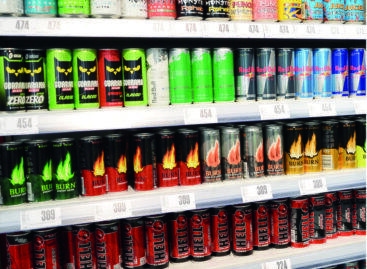In Hungary, the consumption of butter and butter cream is 1.5 kg/person per year
In our country, the consumption of butter and butter cream is 1.5 kg/person per year, which is a third of the EU countries’ consumption of 4.31 kg. The producers produce about 9,200 tons of butter annually, and imports are also 6,800 tons, according to the overview of the National Chamber of Agrarian Economy (NAK) and the International Milk Trade Organization and Product Council (TTT).

Butter is an excellent source of fat-soluble vitamins
Butter can be produced from the milk of several animals, in Hungary cow’s milk is the most common.
About 21 liters of milk are needed to make one kilogram of butter, and butter is made exclusively from milk and/or cream. At the same time, additives (eg beta-carotene as a colorant) can be added, but only if they do not serve to completely or partially replace any component of the milk. The production cost of butter has increased significantly in the recent period.
In recent decades, butter has been attacked a lot because of its cholesterol and trans fatty acid content, which increases blood cholesterol levels, but healthy people do not need to exclude it from a balanced, varied diet. According to the Tej Product Council and its cooperating partner, the National Association of Hungarian Dietitians, its pleasant taste, taste-enhancing effect, versatile preparation, and nutritional content can add color to our diet when consumed in moderation. Butter is an excellent source of fat-soluble vitamins, vitamin D, vitamin K and, in larger quantities, vitamin A. The latter contributes to the healthy functioning of the mucous membranes, skin, vision, and immune system, while vitamin D promotes the absorption of calcium, the formation of proper bones, muscle function, and the preservation of healthy teeth. The yellow color of the butter is due to the antioxidant carotenes. Among minerals, sodium, potassium, calcium, magnesium and phosphorus are found in small amounts.
Related news
Not a turnaround, but consolidation: an agricultural outlook for 2026
🎧 Hallgasd a cikket: Lejátszás Szünet Folytatás Leállítás Nyelv: Auto…
Read more >Labeling rules for energy drinks have become stricter: they can only be marketed with clear labels
🎧 Hallgasd a cikket: Lejátszás Szünet Folytatás Leállítás Nyelv: Auto…
Read more >Related news
Nestlé to sell remaining ice-cream assets but commits to Froneri venture
🎧 Hallgasd a cikket: Lejátszás Szünet Folytatás Leállítás Nyelv: Auto…
Read more >Lidl guarantees fairer prices for cocoa farmers
🎧 Hallgasd a cikket: Lejátszás Szünet Folytatás Leállítás Nyelv: Auto…
Read more >40 secure jobs, sustainable solutions – new BURGER KING® in Csepel
🎧 Hallgasd a cikket: Lejátszás Szünet Folytatás Leállítás Nyelv: Auto…
Read more >








